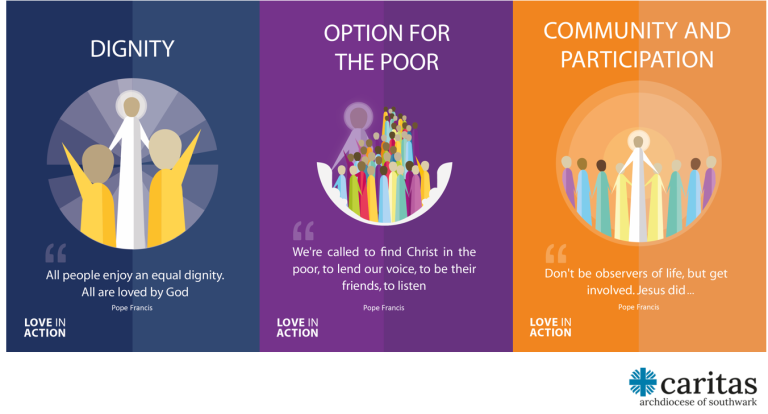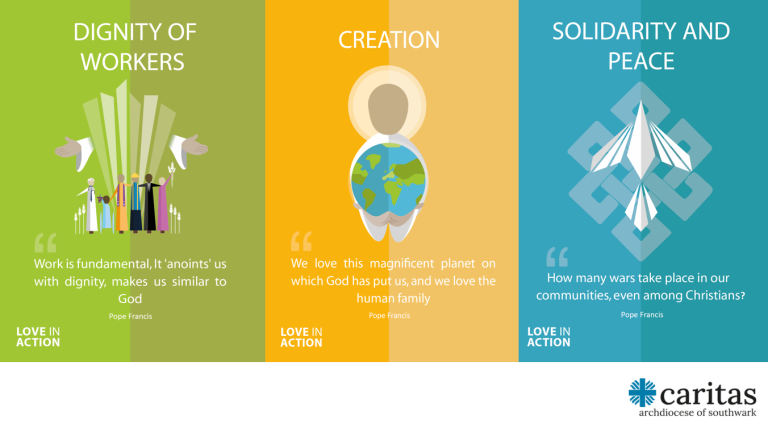Home » Catholic Social Teaching
Catholic Social Teaching is the great wealth of Church teaching on how to live out our faith in the world. Rooted in the Gospel, it is formed by the wisdom of Church leaders and shaped by the daily experience of Catholics everywhere, giving us a moral compass to find our way.
At Caritas Southwark our mission is based on six principles of social teaching which help us to contribute to the common good:


An Agency of the Archdiocese of Southwark
Registered Charity No. 1173050
Caritas Southwark
Bowen House
59 Westminster Bridge Road
London
SE1 7JE
© Caritas Archdiocese of Southwark 2024. All rights reserved.